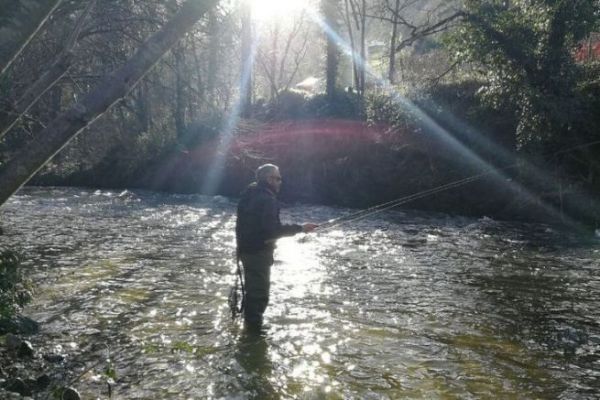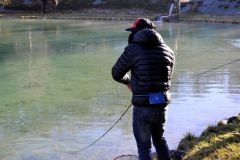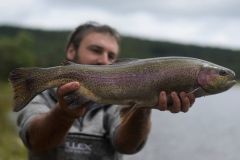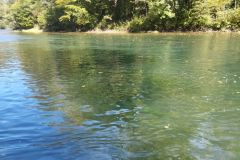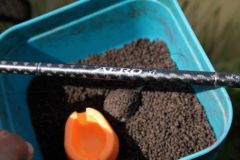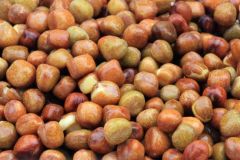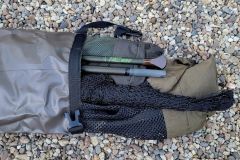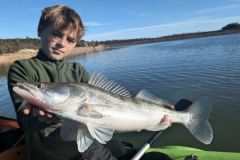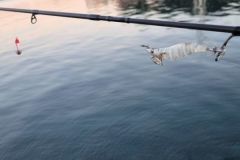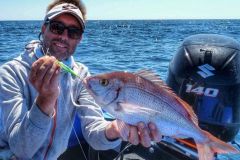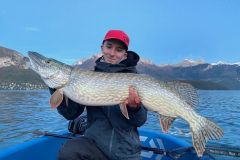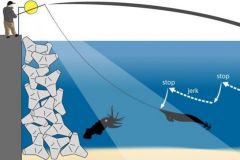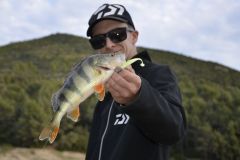If some of you are hesitant to start using this technique, we offer you some simple and basic advice that will allow you to quickly take pleasure in the water.
Choose the right equipment for optimal fishing comfort
There are several schools, each fisherman likes to fish with his own equipment, habits are sometimes difficult to change. Some use remote control rods, others swear by rods with internal wire (quite practical it is true on crowded courses).
I have for my part adopted for a few years the English rod : for lengths of 3m60 or 3m90. I find them light, easy to handle, they can easily cast two lightly weighted nymphs at respectable distances. For fishing in medium and large rivers, it is according to me the most adapted equipment. With a reel filled with colored nylon, a line guide, and leaders with a diameter between 12 and 14 hundredths, it is difficult to make a simpler setup!
On the fly side, the tungsten balls hold an important place. They allow to cast different models of nymphs by varying the colors and the sizes of flies. On the tip, the perdigones are very efficient: their smooth body and their good density allow these flies to immerse quickly. You can use a lighter nymph, or even an unweighted nymph depending on the conditions, by varying the distance between the two lures, until you have found the fishing and the behavior of the fish of the day.
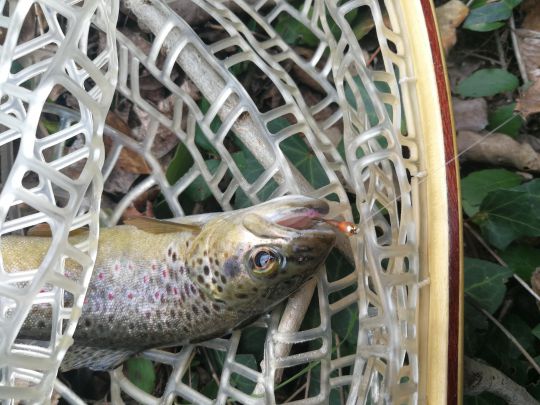
The fishing action for the nymph toc technique
The casting is generally done ¾ upstream, above the coveted water vein. The nymphs should be "on" quickly, and the angler should (almost) immediately feel the contact with his flies. If the touch occurs just after the moment of impact on the water, a non-tensioned line will allow the fish to avoid the trap offered by these artificial flies. If no fish are present during the drift, it is sometimes during the rising phase of the retrieve that some indecisive trout may take action. It is not forbidden either to animate gently its nymphs during the drifts.
This technique of the nymph with the toc is effective to discover and prospect the beautiful rivers proposing pretty currents. Smaller streams are also suitable. In this case, if the flows are more modest, fishing with a single nymph can be recommended.
Before fishing the opposite bank as we all like to do, let's not forget to fish by our feet. Who hasn't seen a trout run away from us a few meters away, at the sight of a not very discreet fisherman?
One last piece of advice before jumping into the water: make sure to set your drag in the fight position before the nymphs touch the water. On this type of fine rig, a big fish would soon punish this kind of oversight.
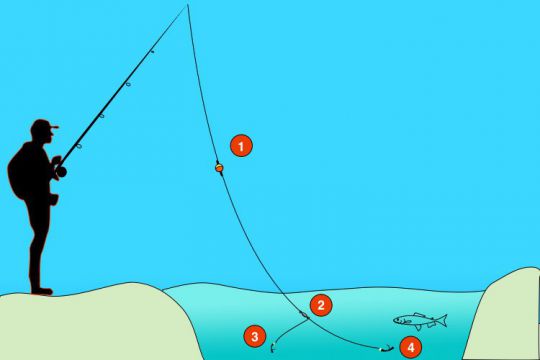
1. Wire guide
2. Small rolling swivel or gallows
3. Lighter nymph (or equivalent size)
4. Nymph tip, e.g. perdigone with 3.5 mm tungsten ball

 /
/ 